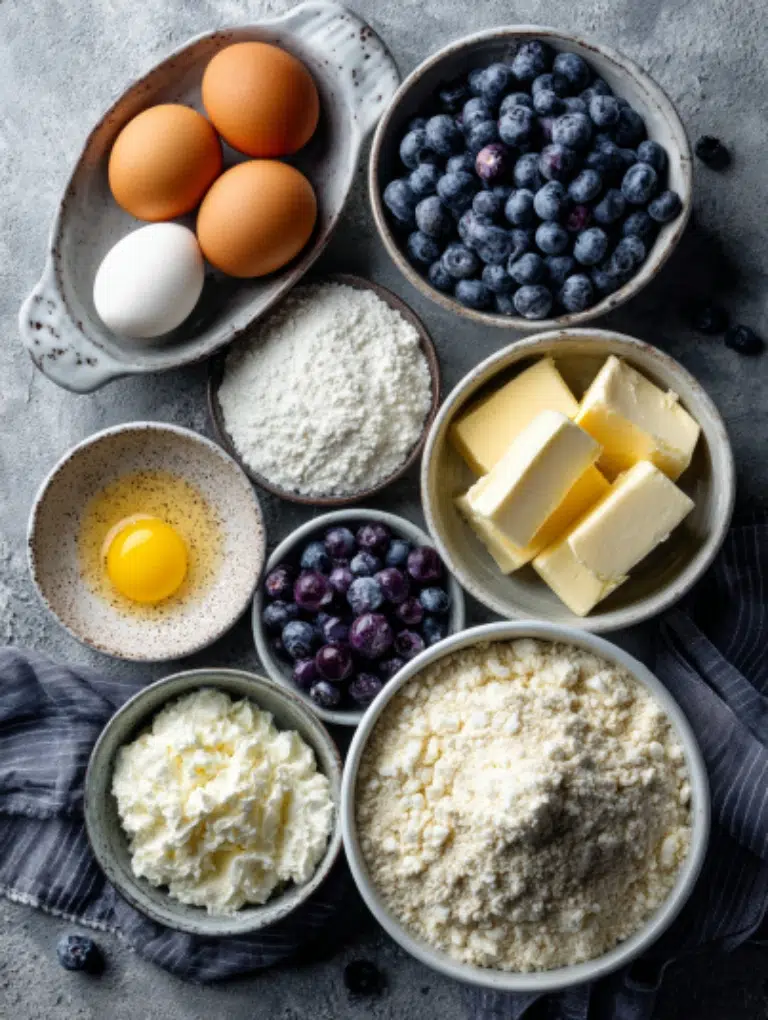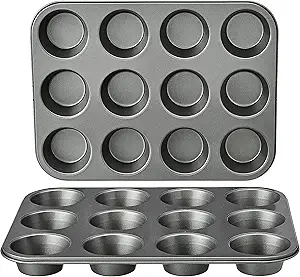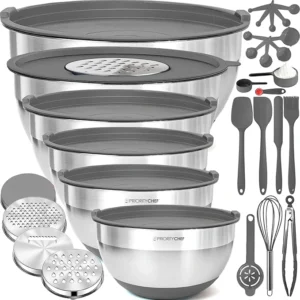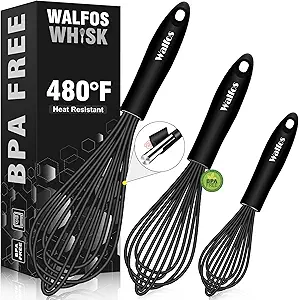There’s something comforting about a warm muffin especially when it’s soft, moist, and just the right touch of sweet. But if you’re living the low-carb life, most traditional versions are off the table. That’s where this keto muffins recipe steps in. These muffins check all the boxes: fluffy texture, simple ingredients, and naturally low in carbs. Whether you’re craving a quick breakfast or a midday snack, this recipe delivers the indulgence without the sugar spike. It’s easy to make, endlessly customizable, and tastes so good, you’d never guess it’s keto-friendly.
Table of Contents
Why You’ll Love This Recipe
- Quick & Easy: One bowl, no fancy equipment, and ready in under 30 minutes.
- Low-Carb & Guilt-Free: Just 9g net carbs per muffin, making it perfect for keto and low-carb lifestyles.
- Naturally Sweetened: Uses a keto-approved sugar substitute that satisfies without the crash.
- Customizable Flavors: Start with blueberries or swap in chocolate chips, lemon zest, or spices.
- Moist and Fluffy Every Time: Balanced ingredients give these muffins a soft crumb with no dryness or weird aftertaste.
What sets this recipe apart? The texture. Many keto muffins fall flat literally. This one rises beautifully, holds its shape, and tastes like something from a bakery, not a “diet.” Whether you’re new to keto or a seasoned pro, this will become your go-to recipe for something warm, satisfying, and sweet without compromise.
Ingredients You’ll Need For Keto Muffins Recipe

Here’s what goes into these low-carb muffins. It’s a simple lineup nothing fancy, just pantry staples that happen to be keto-friendly.
Dry Ingredients
- 2½ cups almond flour: Go for blanched and finely ground. It gives the muffins a soft, bakery-style texture.
- ⅓ cup keto sweetener: Something like Swerve or monk fruit works well here. It should measure like sugar.
- 1½ tsp baking powder: For a good rise.
- ½ tsp baking soda: Helps with texture and browning.
- ½ tsp salt: A small amount that makes the other flavors pop.
Wet Ingredients
- ⅓ cup butter, melted and slightly cooled: Unsalted is best. Adds richness.
- ⅓ cup unsweetened almond milk: Or use another milk you like.
- 3 eggs: Let them come to room temperature first so the batter mixes evenly.
- 1 tsp vanilla extract: A splash goes a long way in rounding out the flavor.
Add-ins
- ⅔ cup blueberries: Fresh or frozen. No need to thaw frozen berries.
- Zest from half a lemon (optional): It adds a bright twist that works beautifully with the berries.
Notes & Substitutions
- No butter? Use melted coconut oil instead. Avocado oil works too, but the flavor will be more neutral.
- Dairy-free option: The butter swap above + non-dairy milk makes these fully dairy-free.
- Nut allergy? Try sunflower seed flour in the same amount. Just note: it may turn slightly green when baked (that’s normal!).
- Vegan version? Replace the eggs with flax eggs (1 tbsp ground flax + 2½ tbsp water per egg). Expect a slightly denser texture.
- Different mix-ins? Chopped walnuts, sugar-free chocolate chips, or raspberries are great substitutes.
How to Make Keto Muffins Recipe
These muffins don’t require much effort, but there’s a rhythm to getting them right. Here’s how to bring them together.
1. Start with the oven.
Set the temperature to 350°F. While it warms up, line a muffin tin twelve cups with paper liners. If you don’t have those, grease each one lightly.
2. Get the dry ingredients together.
In a large bowl, mix the almond flour, sweetener, baking powder, baking soda, and salt. Use a fork or whisk. The goal here is to break up clumps and get everything evenly distributed.
3. Move on to the wet mix.
Add the melted butter, almond milk, eggs, and vanilla straight into the bowl. Stir gently until things come together. It’s fine if the batter looks a little thick or slightly grainy don’t overmix.
4. Blueberries go in last.
If you’re using frozen berries, don’t thaw them. Toss them in a pinch of almond flour to help suspend them in the batter. Fold them in carefully, along with the lemon zest.
5. Divide the batter.
Scoop into the muffin cups about three-quarters full. A spoon or scoop works. Don’t press the batter down; let it settle naturally.
6. Bake on the center rack.
It should take about 23 to 25 minutes. Keep an eye around the 22-minute mark. You’re looking for slightly golden tops and a clean toothpick from the center.
7. Let them cool a bit.
After baking, leave the muffins in the tin for 5 to 10 minutes. They’ll be fragile while hot but firm up as they cool. Transfer them to a rack if you can.
Pro Tips & Troubleshooting
Even simple recipes like these can go sideways if you’re not watching a few key details. Here’s how to get the best results plus what to do if something feels off.
Expert Tips
- Use room temperature eggs. Cold eggs can make the butter seize, which affects texture. Let them sit out for 20–30 minutes first.
- Don’t overmix. Once the dry and wet ingredients are combined, stop. Overworking the batter can make the muffins dense or gummy.
- Let the batter rest. If you have a few extra minutes, let it sit for 5 minutes before baking. This gives the flour time to hydrate and the leavening to activate.
- Toss berries in flour. It’s a small trick, but it keeps them from sinking to the bottom.
- Use light-colored muffin tins. Dark pans absorb more heat and can overbake the bottoms.
Common Mistakes to Avoid
- Skipping the liners or grease. These muffins are moist and can stick. Always prep your pan.
- Baking too long. Almond flour can dry out quickly. Pull them once a toothpick comes out clean, not dry.
- Swapping flours 1:1. Almond flour and coconut flour behave very differently. Don’t substitute without adjusting liquids and eggs.
Bonus Shortcut
Short on time? Mix everything except the berries in a blender for a smoother batter, then fold the berries in by hand. It’s fast, and cleanup is minimal.
Serving, Storage & Variations
These muffins are easy to bake, but even easier to enjoy. You can eat them plain, dress them up, or stash a few for later. Here’s what works best.
Serving Suggestions
- Warm them up and eat as-is no topping needed.
- Spread with soft butter or cream cheese for a richer bite.
- Try them with a few slices of avocado and a hard-boiled egg on the side.
- Great with coffee or herbal tea, especially something citrusy.
How to Store
- On the counter: Keep loosely covered for a day or two. If you seal them tight, they’ll go soft.
- In the fridge: Not ideal, but okay if it’s hot where you are. Cold can dry them out reheat gently.
- Freezer: For longer storage, wrap each muffin in parchment or plastic wrap, then place in a sealed freezer-safe bag. According to the USDA’s Freezing and Food Safety guide, frozen baked goods stored at 0°F remain safe indefinitely, though best quality is within two months.
For more details, refer to the FoodSafety.gov Cold Food Storage Chart.
Reheating
- Microwave: About 15 seconds is plenty.
- Oven or toaster: Try 300°F (150°C) for 5 minutes.
- Air fryer: A couple of minutes on low heat crisps the edges nicely.
Quick Variations
- No blueberries? Use chopped strawberries, raspberries, or dark chocolate chips.
- Want something savory? Skip the sweetener and stir in cooked bacon, cheese, and scallions.
- Need nut-free? Swap almond flour for sunflower seed flour. Same amount, different flavor.
- Going vegan? Use flax eggs and coconut oil. They won’t rise as much, but they still hold together well.
Nutritional Information
These muffins strike a balance low in carbs, rich in healthy fats, and satisfying enough to hold you over. Here’s the estimated breakdown per muffin (based on 12 servings):
Macronutrients (Per Muffin)
| Nutrient | Amount |
|---|---|
| Calories | 229 |
| Total Fat | 18 g |
| Saturated Fat | 4 g |
| Trans Fat | 0 g |
| Cholesterol | 60 mg |
| Carbohydrates | 9 g |
| Dietary Fiber | 3 g |
| Total Sugars | 7 g |
| Protein | 7 g |
Micronutrients (Per Muffin)
| Nutrient | Amount |
|---|---|
| Sodium | 154 mg |
| Vitamin D | 0 mcg |
| Calcium | 82 mg |
| Iron | 1 mg |
| Potassium | 203 mg |
A Few Nutritional Highlights
- Low Net Carbs: With 9g total carbs and 3g fiber, these muffins come in at around 6g net carbs per serving great for a standard keto plan.
- Good Source of Healthy Fats: Thanks to almond flour and butter (or coconut oil), they’re satisfying without spiking your blood sugar. Almonds are also linked to heart health and improved lipid profiles, as shown in this NCBI review on almond consumption.
- Naturally Gluten-Free: No refined flours here, making them easy on digestion.
Note: Nutrition values are estimates. If you change ingredients or make substitutions, it’s smart to plug them into a tool like Cronometer or MyFitnessPal for accuracy.
Conclusion
If you’ve been hunting for a keto muffin recipe that doesn’t taste like a compromise, this is it. These muffins are soft, lightly sweet, and made with ingredients you probably already have if you’re eating low-carb. Whether you’re reaching for a quick breakfast, packing a snack, or freezing a batch for later, this recipe holds up.
With just one bowl and a handful of simple steps, you get something that feels homemade and satisfying not like a diet food.
Frequently Asked Questions (FAQ)
How many carbs are in a keto muffin?
Each muffin has about 9 grams of total carbs and 3 grams of fiber, which brings it to 6g net carbs per serving. This keeps them within the typical daily keto range.
What flour is keto-friendly for baking?
Almond flour and coconut flour are two of the most popular. Almond flour gives a softer texture and mild flavor. Coconut flour is more absorbent and needs more liquid and eggs. They’re not 1:1 substitutes each behaves differently in recipes.
What replaces potatoes in keto?
Many people use cauliflower, turnips, or celeriac as low-carb alternatives. For baking or thickening, mashed cauliflower or almond flour-based mixtures often do the trick.
What is lazy girl keto?
“Lazy keto” means you track carbs only, not full macros. You skip measuring protein or fat intake and just keep your daily net carbs under 20–50 grams. It’s more flexible but still effective for some people.
How many carbs throw you out of keto?
It varies by person, but eating more than 50 net carbs per day could raise insulin enough to stop ketosis. Some people stay in ketosis under 30g, while others have more flexibility depending on activity and metabolism.
How many carbs are in almond flour?
Almond flour contains about 6 grams of total carbs and 3 grams of fiber per ¼ cup — that’s roughly 3g net carbs per serving. It’s one of the most keto-friendly flours available.

















